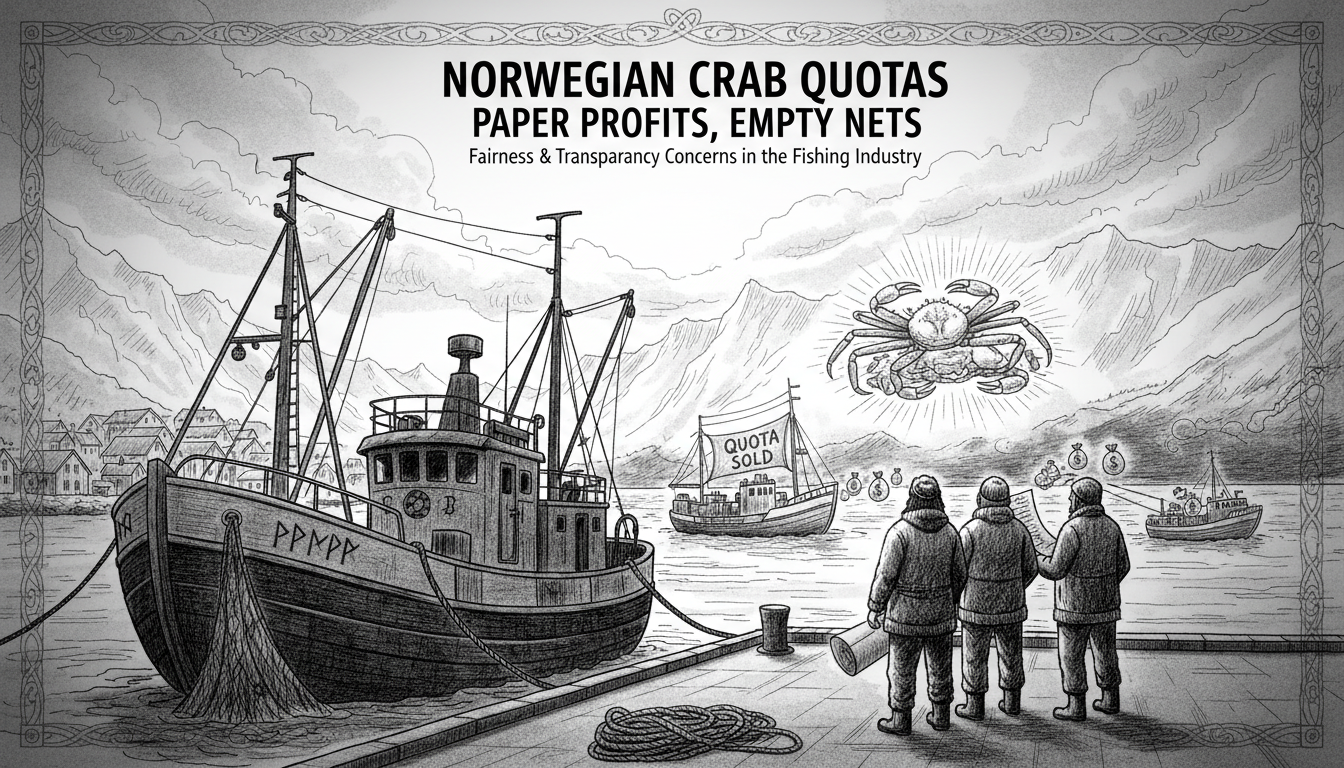Norwegian authorities have distributed free snow crab fishing quotas to vessels that haven't actively fished for years, raising questions about resource management and fairness in the fishing industry. The valuable rights to harvest snow crab in the Barents Sea were intended for companies that had invested in crab fishing operations, but investigations reveal several recipients hadn't fished at all in recent years.
A fishing quota represents an exclusive right to harvest a specific amount of fish or shellfish. These quotas aim to distribute scarce marine resources among fishing vessels and prevent overfishing. While marine resources technically belong to the public, the state distributes quotas free to vessels meeting various criteria. Once allocated, these quotas become the property of the vessel owners and can be resold privately.
The snow crab is a relatively new species in Norwegian waters that has grown increasingly valuable. In the first half of this year alone, Norway exported snow crab worth 1.4 billion kroner. As the resource gained importance, the government introduced a quota system this year to reduce the number of vessels participating in the fishery.
One notable case involves the 50-year-old fishing vessel 'Salvøy,' which received a valuable snow crab quota despite not having fished any species since spring 2022. Three months after receiving the quota, authorities threatened to revoke it because the vessel hadn't fished for three years. The company then transferred the quota to another vessel, 'Piraja,' which harvested five tons of snow crab in June before the quota moved again to another owner.
Several other vessels received quotas under an exemption for boats that had undergone extensive conversions before May 16, 2022. The government intended this exception to avoid penalizing companies that had made major investments. However, multiple vessels that qualified under this exemption hadn't actually fished snow crab during years when the fishery was open to them.
The vessel 'Sea Hunter' received a quota despite not having fished since 2018. Shortly after obtaining the quota, the vessel was resold for approximately 162 million kroner. Similarly, 'Nesholmen' caught only five tons of snow crab in 2022 and nothing since, yet retained its valuable fishing rights.
Perhaps the most controversial case involves the former seismic vessel 'North Atlantic.' The boat was converted into a fishing vessel well after the May 2022 deadline, yet still received a quota. Despite the Fisheries Directorate initially rejecting the application, the Ministry of Trade and Fisheries overturned the decision and even awarded the company 200,000 kroner for legal costs from the quota dispute.
Fisheries Minister Marianne Sivertsen Næss acknowledges concerns about the quick resale of quotas shortly after allocation. She stated she will review current quota transfer practices but cannot comment on individual cases. The minister maintains that the implementation has followed intended guidelines, noting that the number of vessels theoretically eligible to fish snow crab has decreased from 60-70 to about 30.
This situation highlights how fishing quotas have become valuable financial assets in Norway, sometimes divorced from actual fishing activity. The lack of transparency around quota transfers and prices—reportedly ranging from 160 to 200 million kroner for snow crab quotas—makes proper oversight challenging. The system appears to have created opportunities for speculation rather than ensuring sustainable resource management.
What does this mean for Norway's fishing industry? The allocation of valuable public resources to inactive vessels raises fundamental questions about fairness and resource stewardship. As snow crab continues to grow in economic importance, the public deserves clarity about how these marine resources are distributed and whether the current system serves Norway's long-term fishing interests.

